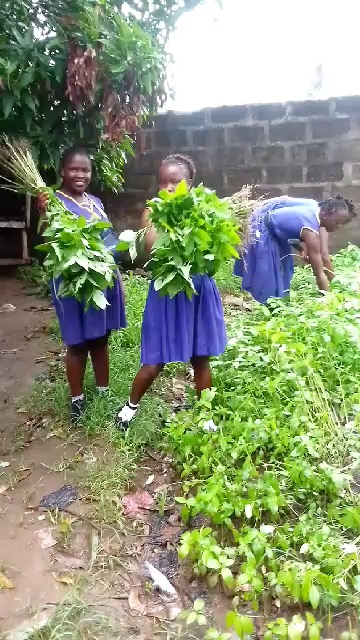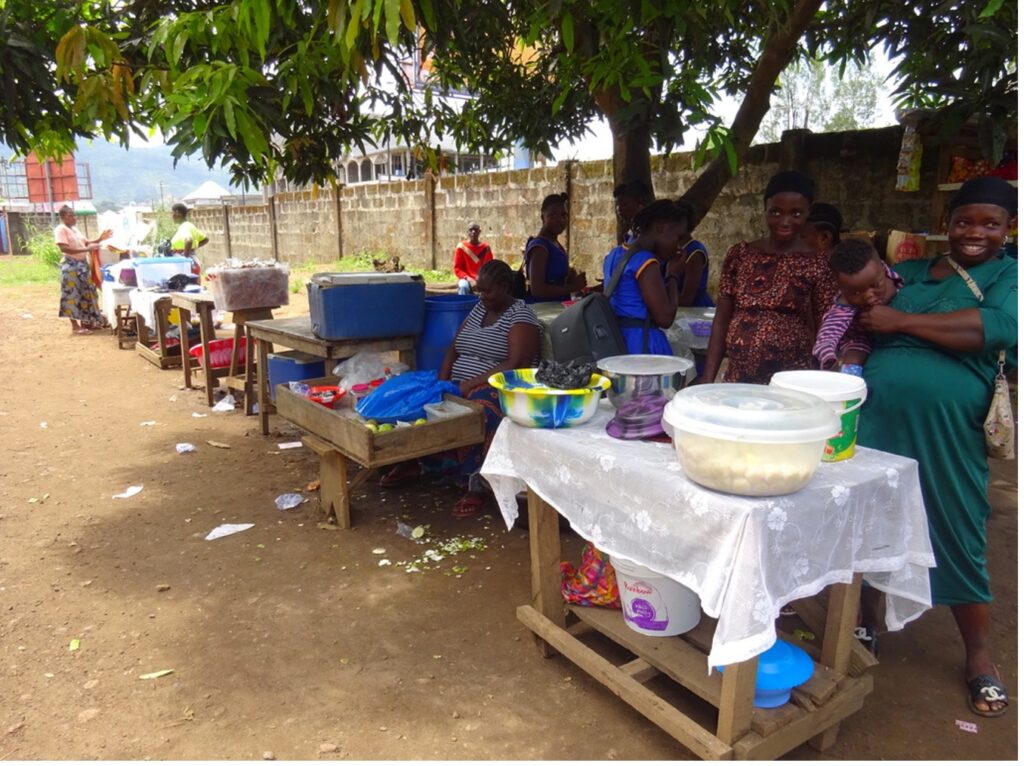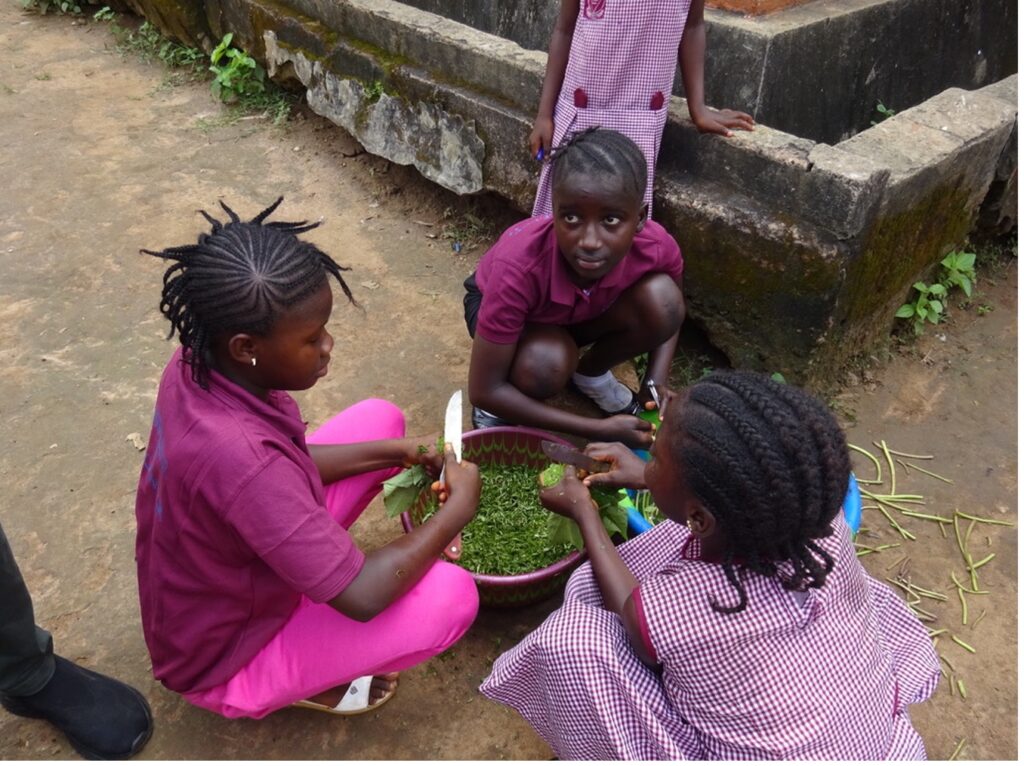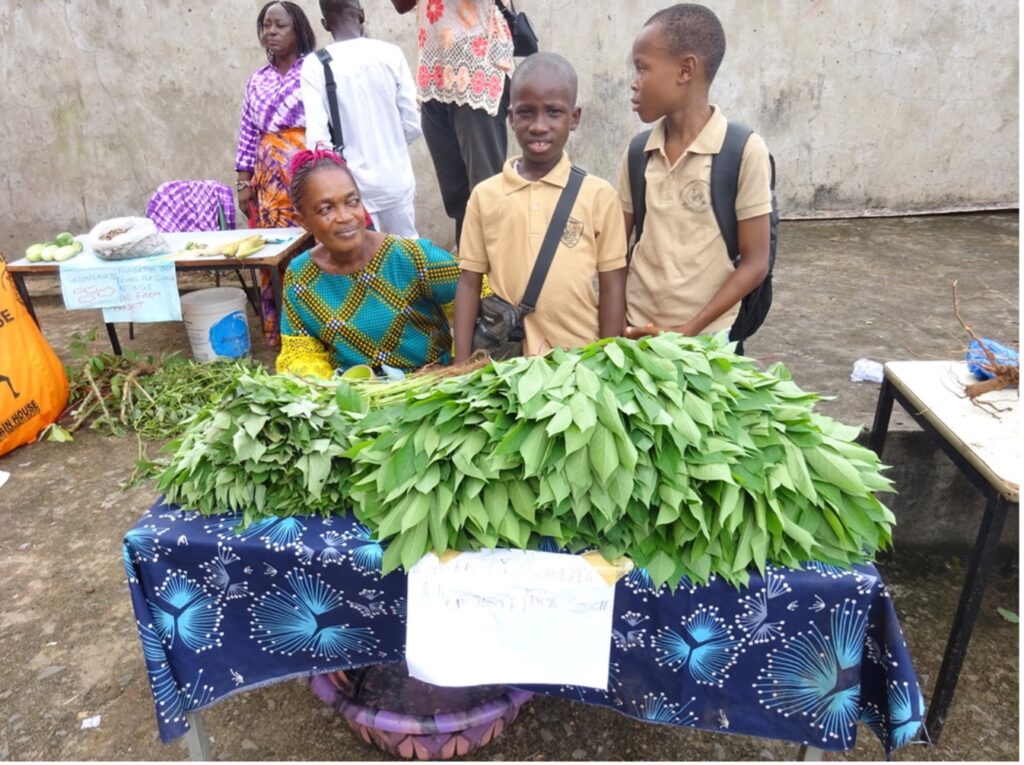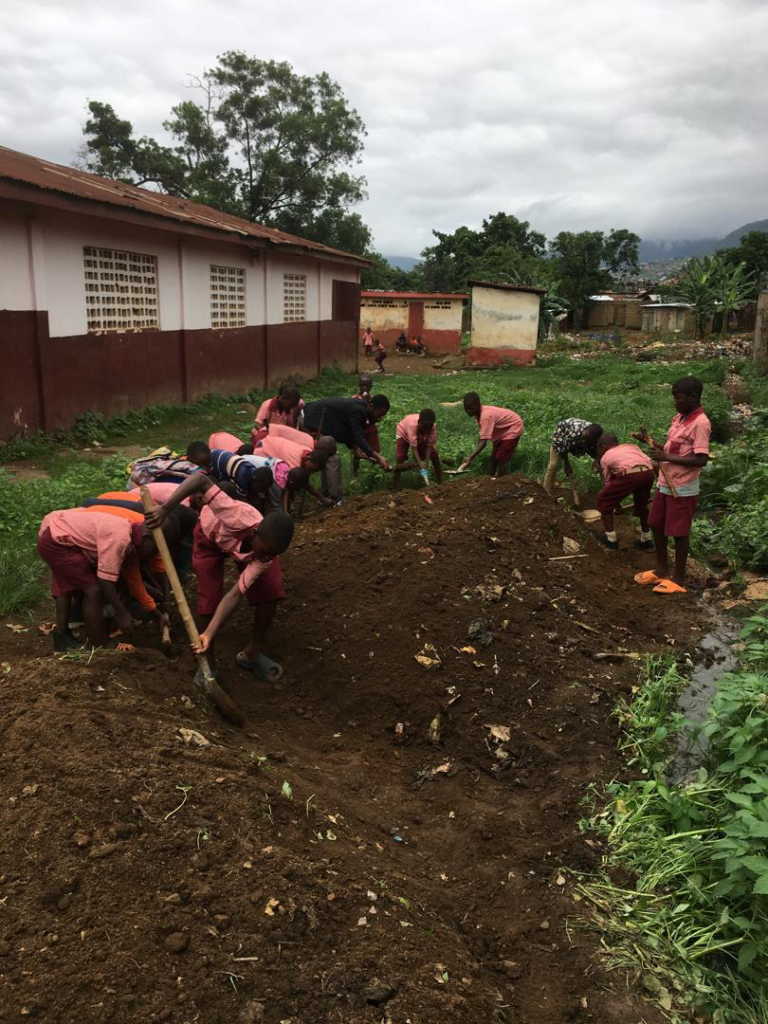School Farms Project
For Isabel’s AGM Powerpoint presentation on the School Farms Project, click here: AGM presentation SFP 2025
Have you ever heard of a project where £9 turned into multiple school farms? The School Farms Project is just one of Hastings Sierra Leone Friendship Link projects that has brought success to our Hastings partnerships.
In 2020, teachers from UK visited Sierra Leone. They took a £200 donation from Battle Horticultural Society to buy seeds for schools. Twenty one schools were given £9 each. Over the next 4 years these small beginnings have grown into a School Farms Project, where 30 schools are now growing crops for school dinners, to give to the local community, to buy resources for the school and to buy seeds for next year. The pupils are learning practical agriculture and cooking that will give them skills for life after education. All led by a local Project Manager Jeitta Kanneh and Assistant Manager Suffian Kamara, working for free. Francis Mason, our Schools Coordinator in Sierra Leone also plays a key role, providing training facilities and communication links. These farms are now sustainable. This dedication has inspired our schools in UK to start their own allotments. Just one of the exciting projects that has brought our two Hastings closer together. And it all started with £9.
This unique and creative initiative supports many of the Sustainable Development Goals – Zero Hunger, Good Health and Well-Being, Quality Education, Gender Equality, Decent Work and Economic Growth, Responsible Consumption and Production, and Partnerships for the Goals.
The objectives of the project have developed over the 5 years of the project. However, these are the long term aims/objectives and outcomes for the School Farms.
- To become sustainable – 26 schools now have access to seed banks to use for the following year.
- To involve the local community – 10 schools now have close ties with the local community.
- To develop practical agriculture skills for students and staff – all 30 schools have now achieved this
- To provide the school and local community with crops for food – all 30 schools now provide food for school meals.
Here’s how it works and is being achieved.
HSLFL donated £1000 a year over the last 4 years. The School Farms Manager decides how that money is allocated in discussion with Assistant Manager and Schools Coordinator for our link in Sierra Leone. Schools are invited to a start of year workshop, where funds are allocated and objectives agreed. Schools then develop their farms through the year, and managers visit schools and write reports. These are fed back through regular Zoom meetings to the management team. Headteachers have regular meetings through the year and share their successes and problems. They also share skills, for example one teacher taught others how to grow rice, the staple food in Sierra Leone. In November there is a celebration of the harvest through a community held Exhibition.
Positive changes
30 schools are now maintaining farms and growing huge areas of crops. The group of schools has come together as a community, learning from each other as well as developing a support network. Those schools that are nearer to achieving the objectives help with ideas for other schools who are still working towards them. The managers give advice about creative ways to overcome difficulties, eg fencing by using waste materials, care of tools so that they last longer, and how to involve the local community.
For Isabel’s Powerpoint on the schools links and the Schools Farm Project, click here: AGM presentation SFP 2023(reduced)

